40 лет Санкт-Петербургской типологической школе - [82]
Lazard G. & Peitzer L. Structure de la langue tahitienne. Paris; Louvain, 2000.
Paris C. L'abzakh (dialecte dutcherkesse occidental) // Actances. 1991. № 5.
M. Leinonen
Possessive resultative perfects in Komi-Zyryan
Komi-Zyryan, which belongs to the Uralic languages and to the branch of Permic languages, is an agglutinative language with the predominant order SVO. Except for the order of the main constituents, it is a typical determiner-head language with postpositions, possessive suffixes, 15 cases, no gender, no congruence between adjectival attributes and their heads, and no copula in the present tense.
The temporal categories include the simple tenses (present and past, the future tense is expressed morphologically in the third person only), and the so-callpd analytic or compound tenses. Between these stands the perfect-like construction based on a past participial form without copula, sometimes called the 2nd past, sometimes unwitnessed past, and in the new grammar of Komi unwitnessed perfect. The copula may have the forms of the simple past and the 2nd past with the participial marker — dm(a), which is neutral as to active or passive. This together with the lexical verb forms produces the analytic constructions. The order of the copula and the lexical verb may vary. The term «unwitnessed» equals evidentiality and covers in the language system the same basic variants of «indirectness» as in the Turkic, Georgian, Bulgarian etc. languages where the category is being studied: quotation, hearsay, conjecture and mirativity (see e. g. [Journal of Pragmatics 2001; Johanson & Bo Utas 2000; Guentchdva 1996]).
The paradigm of vetlyny «to go»:
In the above paradigm, the tenses are labeled by terms that give an approximate content to the categories. In the grammar, the author of the section on the verb, E. A. Cypanov, cautiously uses simply numbers for the past tenses: 1st, 2nd, 3rd, 4th, 5th, and 6th past.
In the literary language and the majority of the dialects, for the first person of the perfect/unwitnessed past an impersonal construction is preferred. It consists of the genitive form of the personal pronoun/animate noun and the participle-based form with the 3rd person reflexive suffix — s'öma. The meaning of the construction is always that of an involuntary or non-conscious action:
Menam dyr uz's'öma
I-GEN long sleep-REFL-PERF-3 SG
«I have slept/overslept».
The construction is specialized for the meaning of involuntary action in other tenses as well, and has parallels in other Finno-Ugric languages in that the demotion of the subject (nominative), adding a reflexive suffix (in Finnish, a causative suffix), the directionality, controllability of the action is cancelled. Unplanned actions are often expressed by this construction:
A menam tajö ködzyd lunjasys kežlö bytt'ö tödömön
but I-GEN this cold days-POSSDEF during as.if knowingly
vajs'öma gortys' medrad'ejtana kn'igaös
bring-REFL-PERF-3SG home-ELAT most.favored book-ACC
«But for these cold days I happened to have brought as if knowingly from home my most favourite book» [I. Toropov 1988:157].
There is another usage for the reflexive forms. In grammars, it is presented separately as an Aktionsart which expresses finality, exhaustiveness, apparently in all tenses:
Taltn kežlö udžavs'is
today during work-REFL-PST-3RD
«For today, (we/you/they) have worked enough», «Enough work has been done» [Fedjunjova 1998: 32].
In Komi-Zyryan, a development seems to be taking place which is very natural, and possibly aided by areal influence: the genitive subject appears together with the — oma perfect, which is invariant, that is, impersonal. With transitive verbs, the object is either in the nominative or in the accusative. When nominative, the object can be called a subject, as in other languages which express their perfects with habere verbs:
Menam stavys das'töma
I-GEN all-NOMDEF prepare-PERF-3 SG
«I have everything prepared».
The accusative object also produces a resulting state interpretation:
Menam stavsö das'töma
I-GEN all-ACC prepare-PERF-3SG
«I have everything prepared».
Note that the corresponding grammatical construction is found, though rarely, in the surrounding north Russian dialects, which use a locative possessor with accusative object and a past participle predicative form:
U bat'ki u tvoego saženo berezku
at-father at-your planted-NEUTRE birch-ACC
«Your father has the/a birch planted, has planted the/a birch».
[Kuz'mina & Nemčenko 1971:93]; «possessive perfect» in [Fici Giusti
1995: 222–231].
While it is difficult, if not impossible, to decide whether any areal influence is at work here, we may note that in Komi, there is a construction with the genitive as an agent of participial attributive forms:
Starukalön s'etöm sumkays
old.woman-GEN give-PRTC bag-NOMDEF
«the bag given by the old woman» [Bubrih 1949:128].
In present-day Komi, the genitive seems to have been replaced by the instrumental everywhere, but the former usage can be found in the texts of certain writers; it appeared in the spontaneous dialectal speech in the 1940s as well:

Книга Гасана Гусейнова «История всего: лекции о мифе» — увлекательное чтение об античности и не только. В ее основе лежат лекции, прочитанные для издательского дома «ПостНаука». В них, как и в других работах автора, далекое прошлое вступает в диалог с настоящим. Прожорливый Кронос, трусливый Зевс, капризный Эрот уже не просто герои мифов — они наши современники, которые заново открывают телесность и пол, вдохновляют панков и отвечают на ключевые вопросы современной культуры.
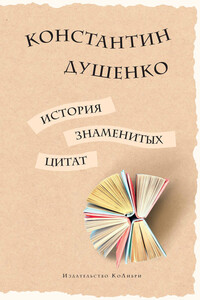
Популярные цитаты – одна из важных частей культуры; нередко это формулы нашего мышления. Знать, откуда они появились и что они означали в разное время, – дело вовсе не лишнее. Позволю себе предположить, что даже осведомленный читатель узнает немало нового о том, что он считал хорошо известным. А кроме того, выяснение этого – занятие необычайно увлекательное… К. Душенко.
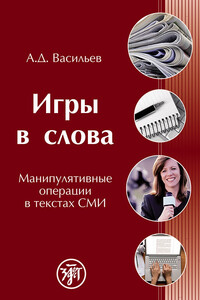
Монография посвящена манипулятивному использованию слов в текстах российских средств массовой информации. Для иллюстрации дискурсивных процессов представлены и проанализированы многочисленные примеры.
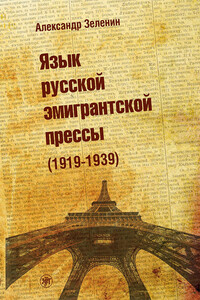
Книга отражает результаты диссертационного исследования, основанного на материале богатейших зарубежных архивов. Адресована специалистам в области языка прессы, языка и культуры русского зарубежья и всем, кто интересуется историей русской эмиграции первой волны. Издается в авторской редакции.
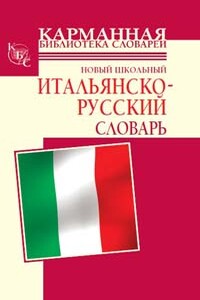
Словарь, созданный русскими и итальянскими специалистами, знакомит читателей с новыми словами, их различными значениями и оттенками, а также случаями употребления, которые можно активно использовать в повседневной жизни.Более 1000 слов и текстовых примеров, позволяющих раскрыть особенности синтаксиса современного итальянского языка.
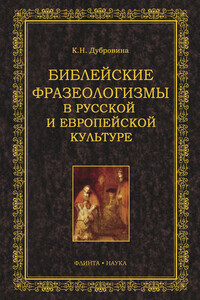
Книга представляет собой научный труд в популярном, доступном изложении. В ней рассказывается о библейских фразеологизмах (образных выражениях, пословицах, поговорках, афоризмах, крылатых изречениях) и библеизмах – словах в русском и других европейских языках, а также об отражении библейских образов, сюжетов, идей, правовых и морально – этических норм и воззрений древнего Востока в культуре народов, исповедующих христианскую религию. Особое внимание уделяется русской национальной культуре: использованию библейских слов и выражений в русском языке, в художественной и публицистической литературе, в изобразительном и музыкальном искусстве.Для гуманитариев разных специализаций: филологов, историков, культурологов, искусствоведов, школьных учителей, преподающих основы христианской (православной) культуры, а также для самого широкого круга читателей, интересующихся историей русского языка и культурой русского и европейских народов.Книга создана на кафедре общего и русского языкознания филологического факультета Российского университета дружбы народов (РУДН) при поддержке Российского государственного научного фонда (РГНФ).